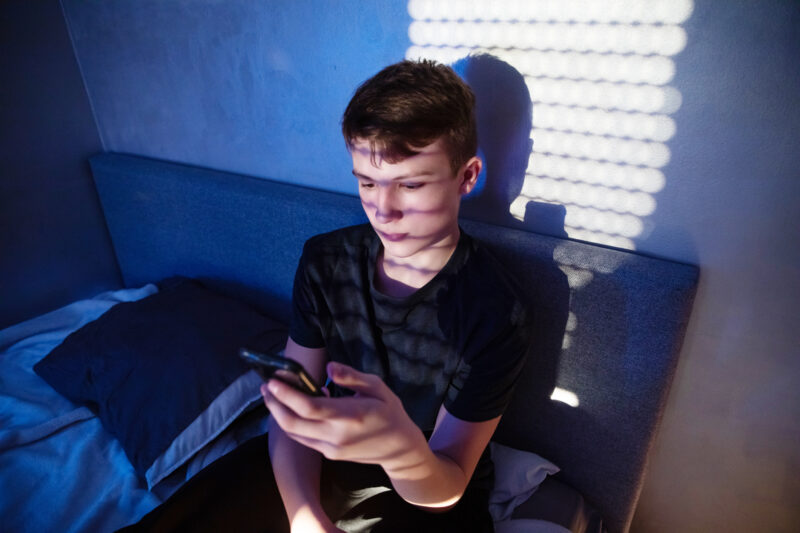
Is your teen sexting? It’s a question many parents don’t want to think about their children doing, but it’s important to consider because it’s more common than you might think.
Sexting, or sex texting, is on the rise, especially as more and more kids get smartphones. According to Common Sense Media, about 88 percent of teens aged 13 to 18 have smartphones and a recent study by the Journal of Adolescent Health found nearly 20 percent of kids have sent a sext, while 35 percent have received one.
“So much of this generation’s conversations are happening online, so sexting is a natural extension of that,” said Anya Kleinman, MD, a pediatrician in Akron Children’s Emergency Medicine Department. “Plus, exposure to pornography or sexually explicit material is happening much earlier than a decade ago because kids have access to it online at younger and younger ages, normalizing it in teen conversations.”
Sexting is sending or receiving sexually explicit messages, photos or videos via smartphones or other devices. But whether teens are sending sexts as a joke, to flirt, experiment with a romantic partner or because of peer pressure, the ramifications can be severe.
Dr. Kleinman sheds light on sexting and what parents need to know to keep their children safe from online dangers, such as sextortion. It may be an uncomfortable conversation to have with your kids, but it’s important to talk about sexting early on, so they have the information they need to make safe and healthy choices.
Why can sexting be dangerous?
While sexting may seem like an innocent activity, especially if it’s done with mutual consent, teens need to understand that problems can arise — ones they’re probably not thinking about.
Online activity is never private. Pictures and videos sent online are never truly private or anonymous. In seconds, they can be out there for all the world to see. Once it’s digital, it’s out of your teen’s control and could be impossible to erase. Even people your child trusts may forward it on. Risky online behavior could later haunt your college applicant or job seeker.
Sexting can lead to mental health issues. If a compromising image goes public, your teen could be at risk of humiliation, embarrassment, and public ridicule or bullying. It could damage your teen’s self-image, and even lead to depression and other mental health issues.
There can be legal consequences to sexting. Laws vary from state to state, but a teen could face felony charges for texting sexually explicit photos of a minor or have to register as a sex offender.
Sexting can lead to dangerous crimes. When kids sext, they are more vulnerable to digital dangers, such as online predators and sextortion. The Federal Bureau of Investigation recently warned of a huge increase in sextortion cases involving children and teens, especially among boys aged 14 – 17, being threatened and coerced into sending sexually explicit images online.
 What can parents do to help keep their kids safe?
What can parents do to help keep their kids safe?
Keep an open, honest and ongoing dialogue with your teen about being a good digital citizen, and make sexting a part of your general discussions about safe sex and healthy relationships. Discuss personal responsibility and boundaries, and how to resist peer pressure.
Start early, even if you don’t think sexting has affected your child. If these topics are already a part of your ongoing communication with your kids, if a problem occurs, they will be more open to talking about it with you.
You can use questions to help lead your children to see what could go wrong and how sexting could impact them long term. What could happen to that photo if you break up with your boyfriend/girlfriend? Do you think a nude photo is private or could it land in the wrong hands? Do you have any friends that sext? Do you think it’s safe?
You also can ask your teen’s pediatrician to have conversations with your child about online safety habits. Pediatricians are your ally in kids’ development, said Dr. Kleinman.
“If your teen is sexting, these ways of communicating are more productive than shaming or punishing your child, which might push them to continue the behavior in secret,” she warned. “Instead, when kids are led to figure out potential consequences on their own, they’re more apt to change their behavior.”
If parents are concerned about their children’s digital safety, discuss it with their pediatrician. The provider also can refer your child to community resources, such as healthy sexuality and cyber security programs. If you believe your child is a victim of a crime, report it to law enforcement.










